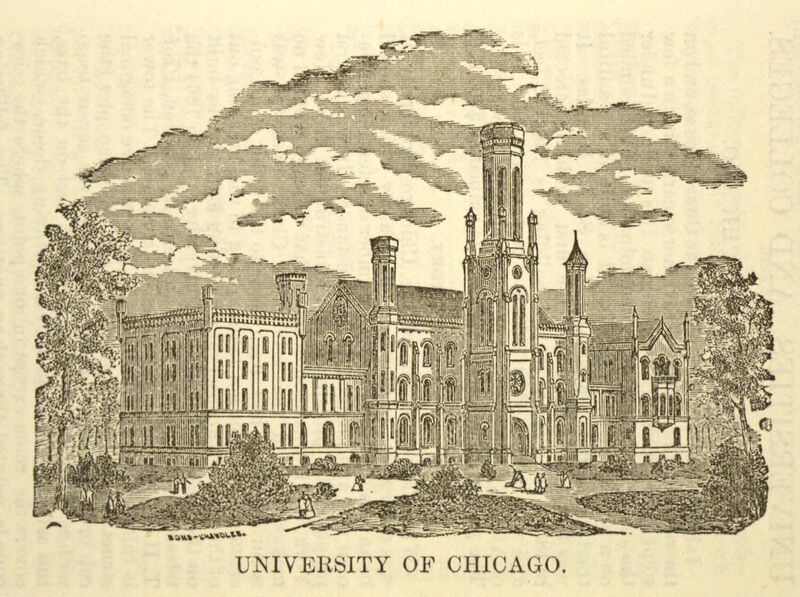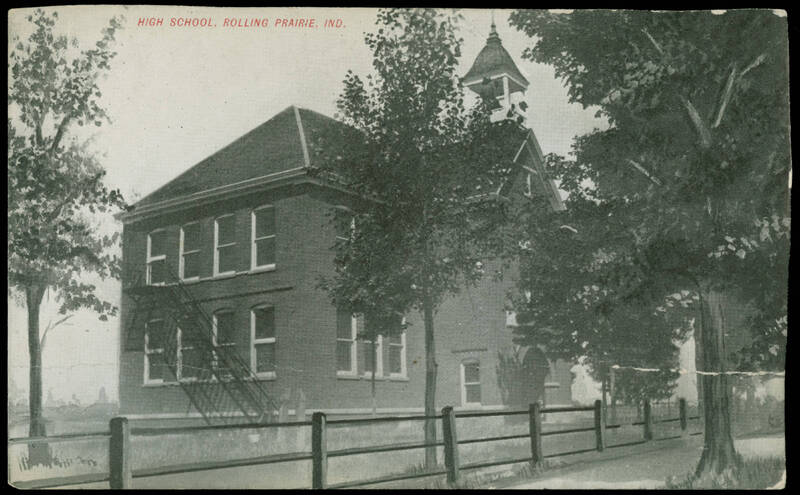Fanny Butcher: Education and Early Career
Butcher graduated from McKinley High School in 1906 and went on to study at the Lewis Institute (which is today known as the Illinois Insititute of Technology). Despite wishing to travel further from home for school, she enjoyed her time at the Lewis Institute, gravitating towards English and writing in particular.
Along with her teachers at the Lewis Institute, one of the most influential people in Butcher’s early life was an employer, Mrs. French. Mrs. French, who was blind, hired Butcher to read to her regularly. Initially unsure what to expect of the job, Butcher soon discovered that Mrs. French had no interest in poetry or fiction, and preferred more academic topics, including history, science, and philosophy. During their time together, Butcher read widely, absorbing titles she may not have otherwise encountered. Mrs. French sought out challenging works with a strong writing style. Butcher was originally hired to read an hour a day, five days per week, but she writes in her memoir that she often stayed much longer than that to read to the woman. “As I look back,” Butcher writes, “I realize that, if any one person in my life did the most to make books the great love of my life, it was that gentle and sightless woman whom I needed infinitely more than she needed me” [3].
Butcher’s connection with Mrs. French continued to enrich and improve her life. After finishing her studies at the Lewis Institute, she attended the University of Chicago. During her time there, a wealthy, unmarried friend of Mrs. French, Miss Bushnell, decided to take care of Butcher’s educational expenses. Butcher’s kindness to others seemed to invite kindness into her life. She recalls thinking that Miss Bushnell took joy in the arrangement, in an amount almost commensurate to Butcher’s appreciation.
Butcher's first job after university was as a school principal in Rolling Prairie, Indiana, a position which turned out to be simply that of an overworked teacher. Butcher writes in her memoir that she and the other new teachers naively accepted their jobs, as they were not warned of the challenges that previous employees at this particular school faced. The students were rowdy and difficult, according to Butcher, and none of the previous teachers had been determined enough to stay on longer than three months. Although Butcher and the other new principals tried their best, the cold winter and the difficult classroom environment soon were too much for them; “[w]hen we left, we were overwhelmed by congratulations from all sides for staying so long;” they had taught for five months [4].
After her somewhat disastrous adventure in teaching, Butcher took a few more odd jobs before moving into the literary journalism sphere. Her first job of this type was as a story writer for two different small, and quickly defunct, magazines. Her next move was to the Chicago Evening Post. Although some of these jobs could more accurately be described as volunteer positions, since Butcher was not always compensated for her work, this was her first opportunity to begin doing what she truly enjoyed: writing about books.
[3] Butcher, Many Lives—One Love, 23.
[4] Butcher, Many Lives—One Love, 30-31.



